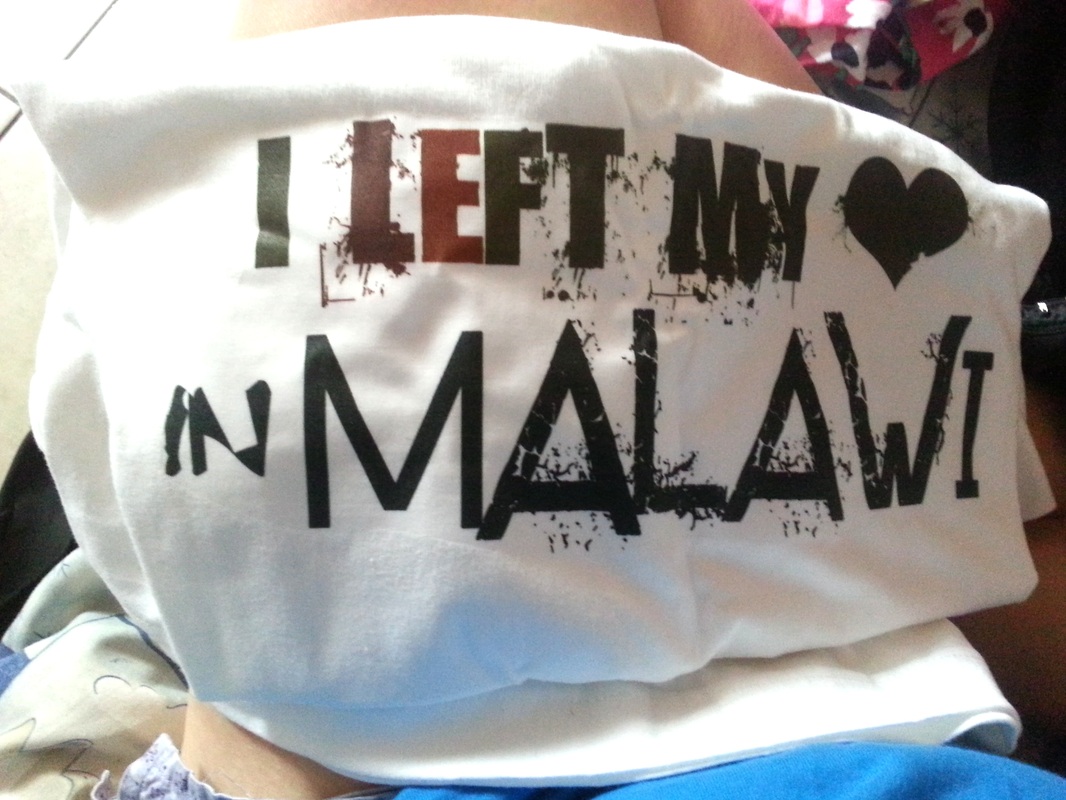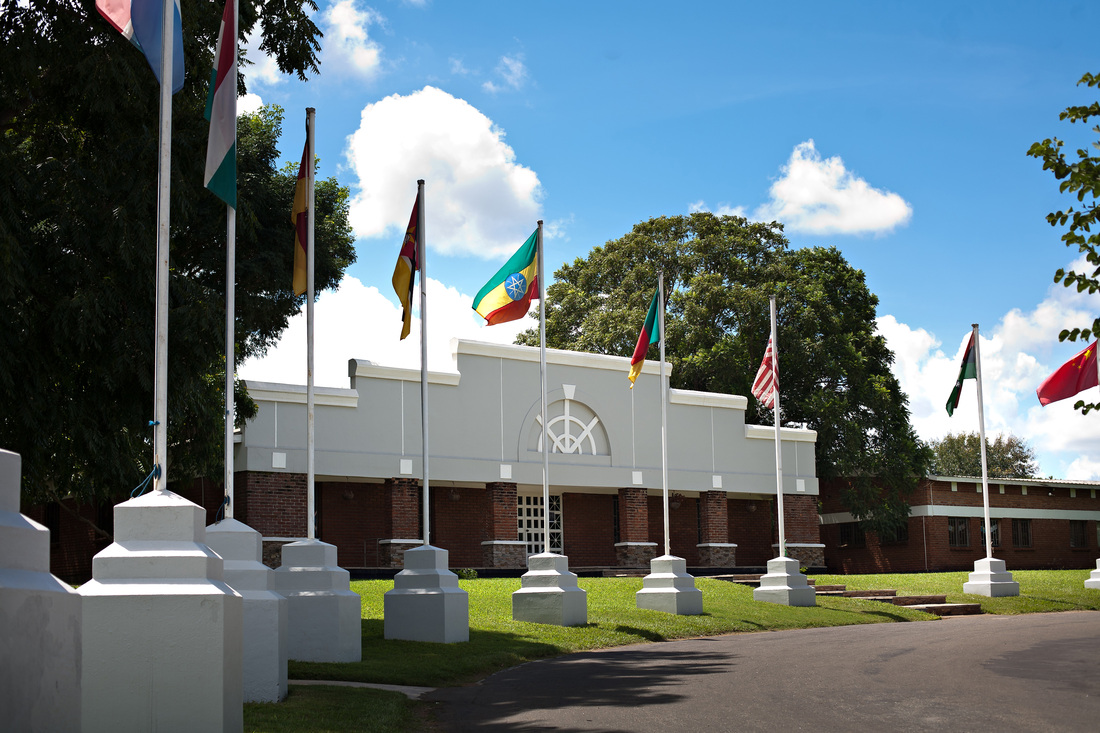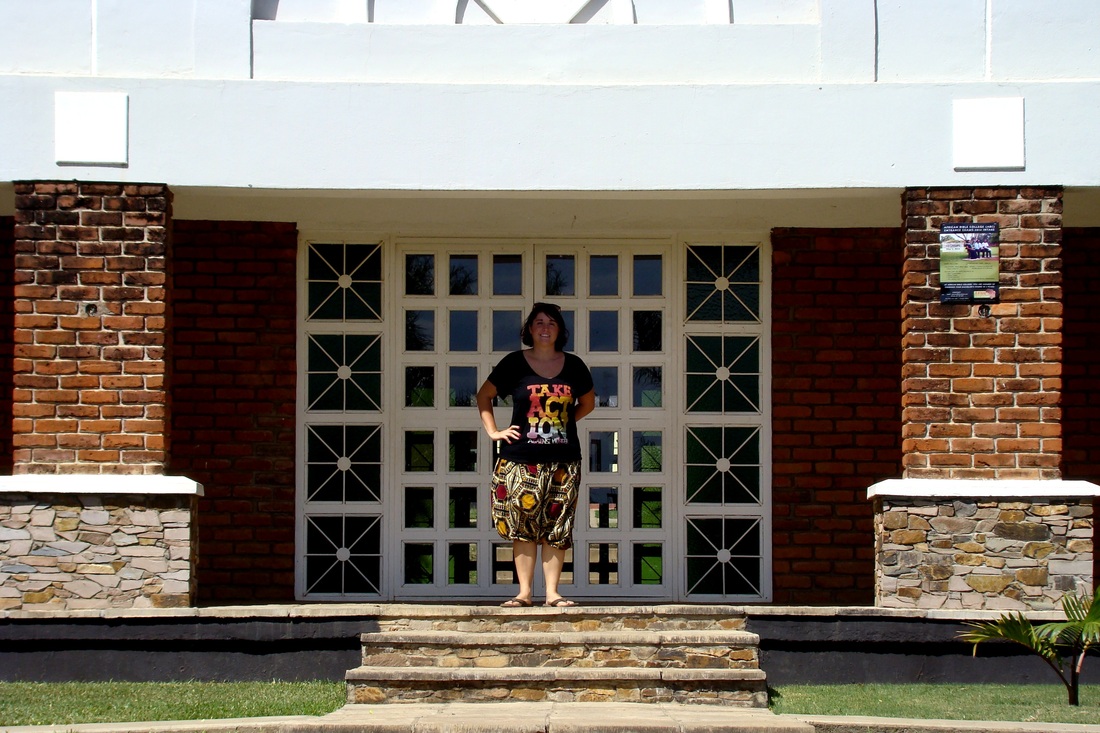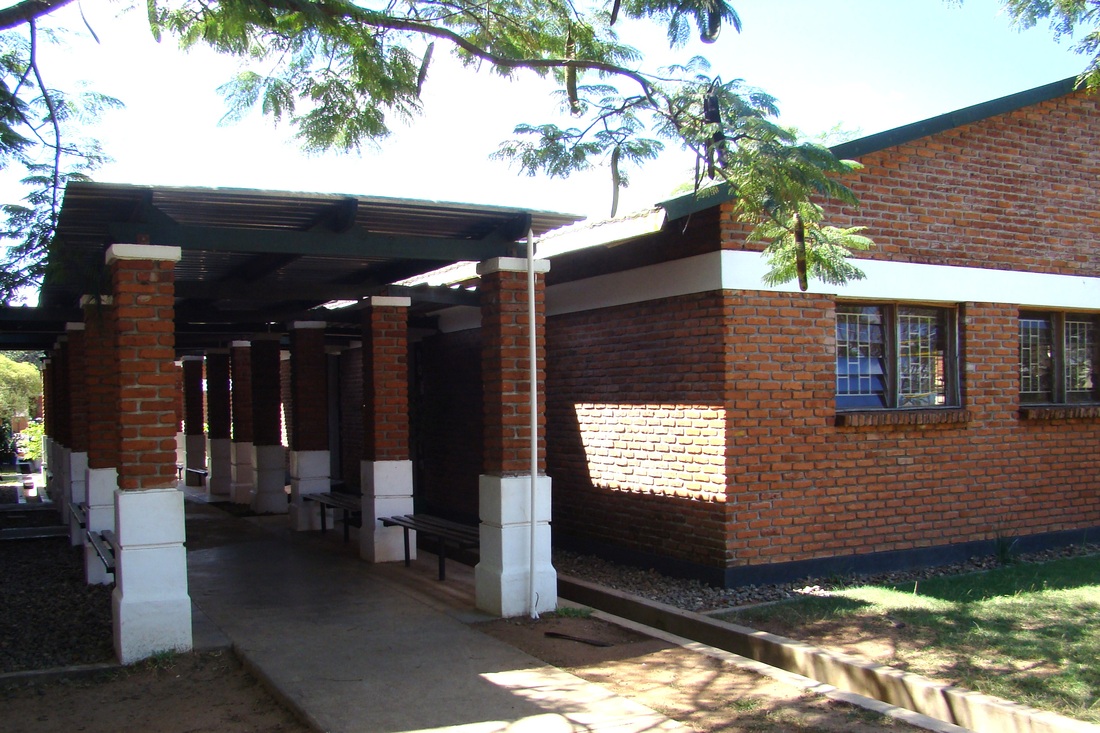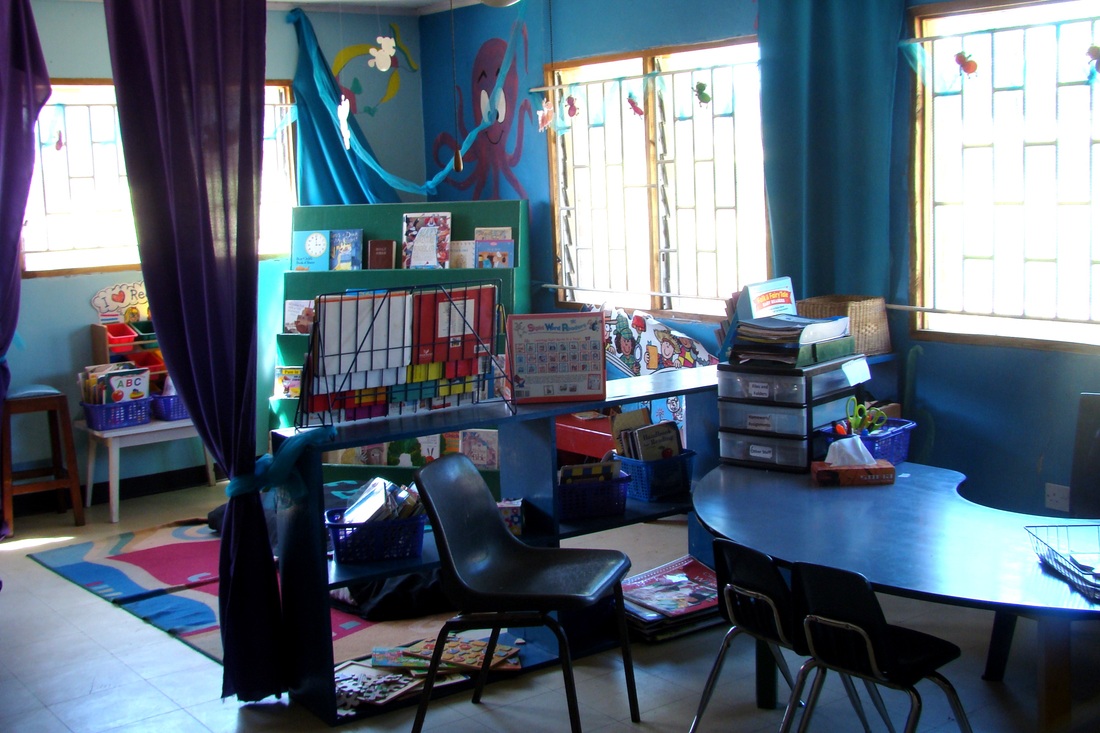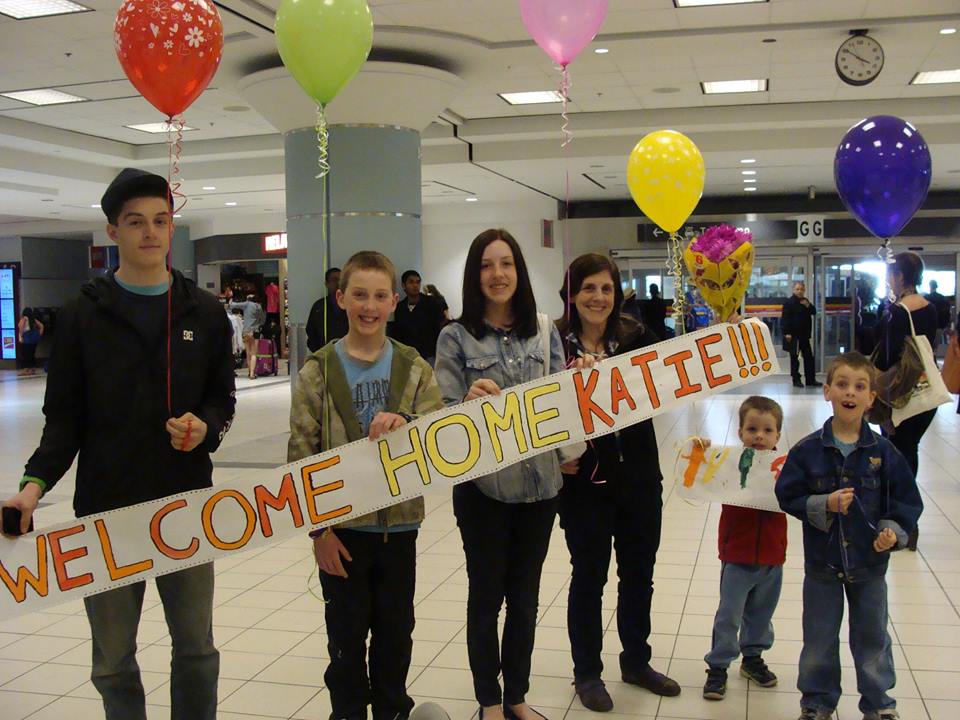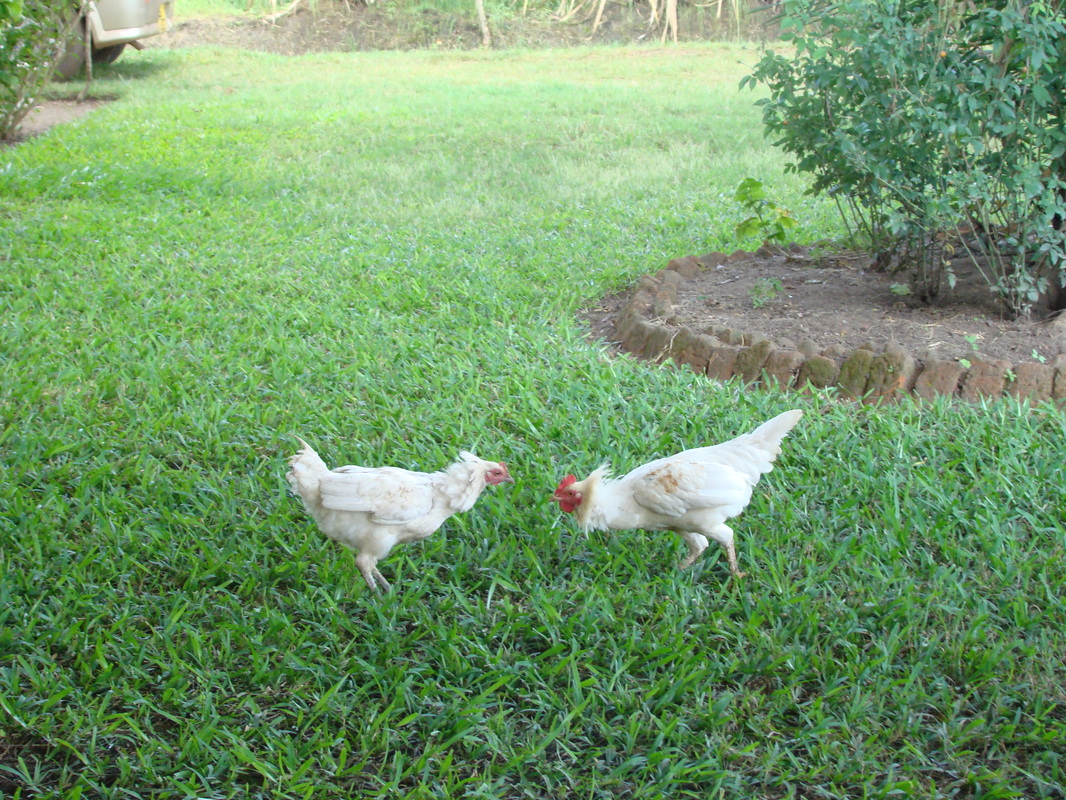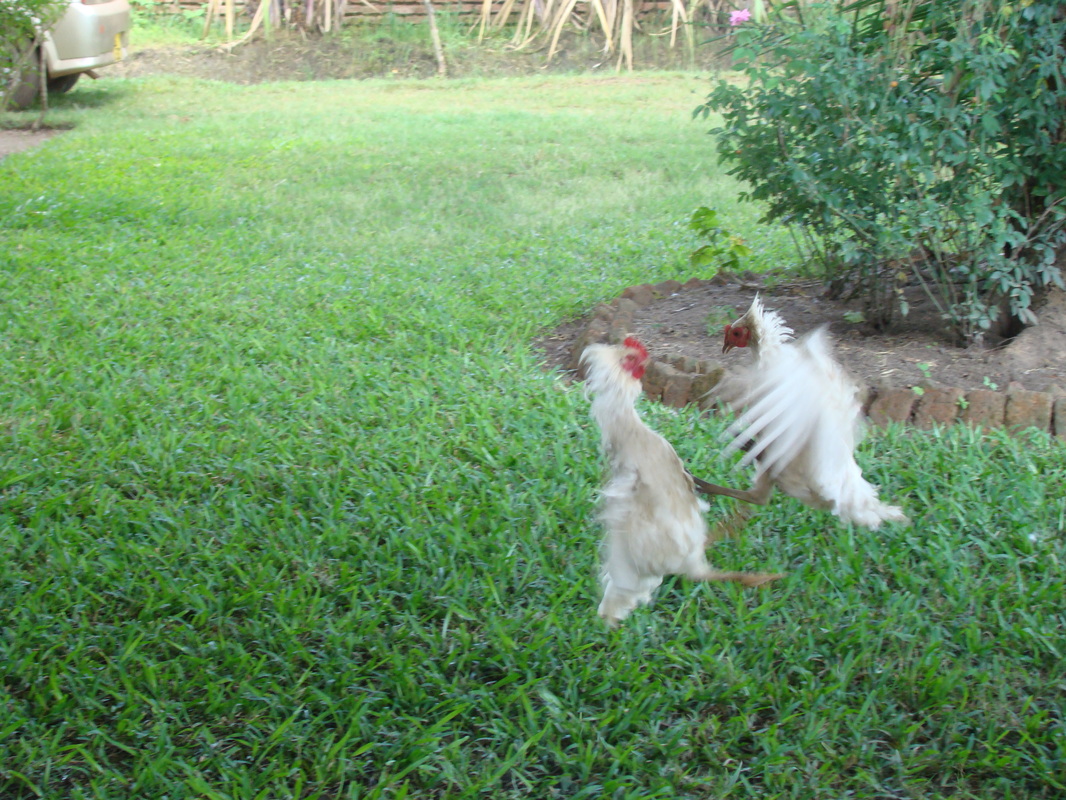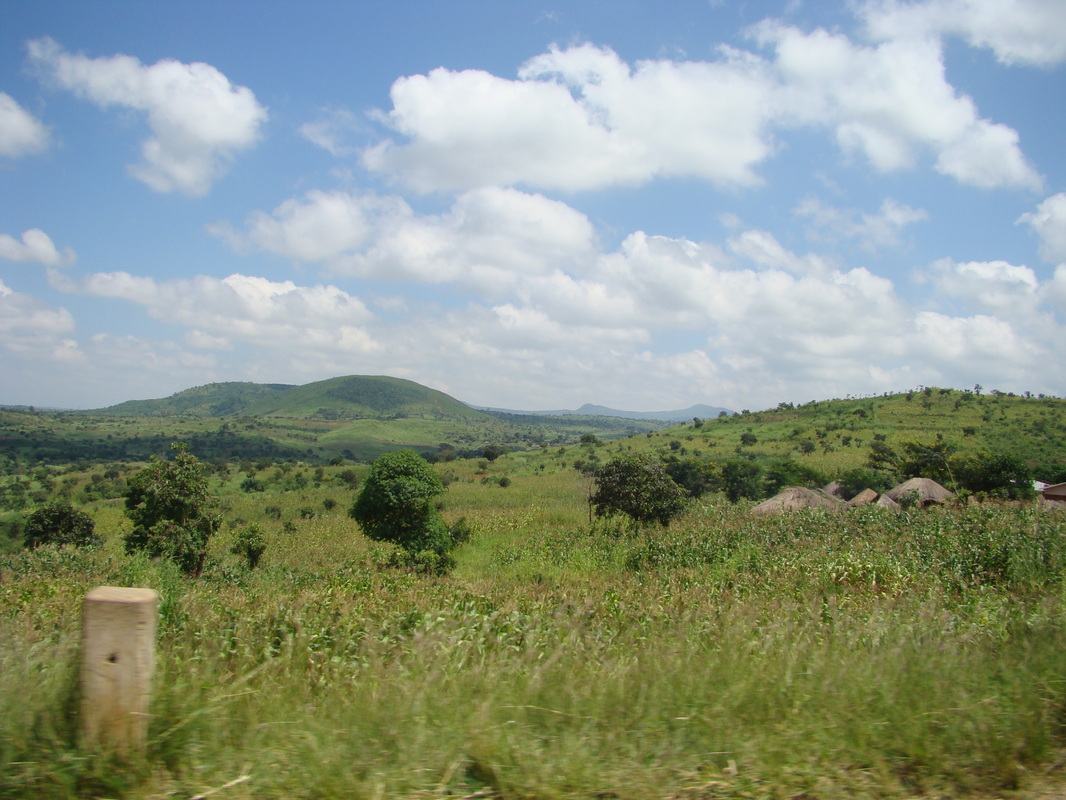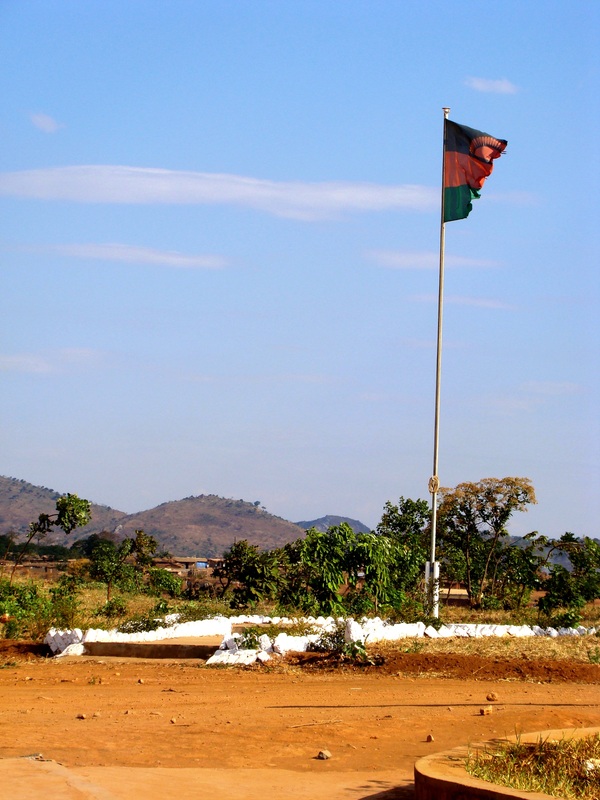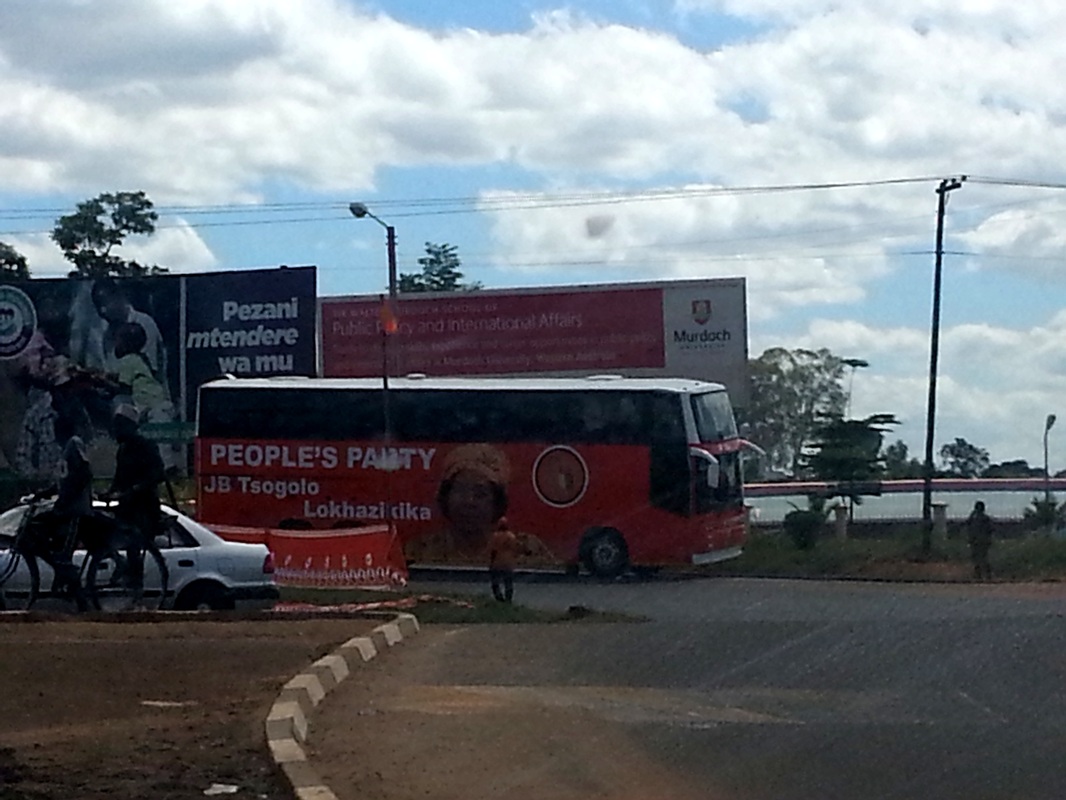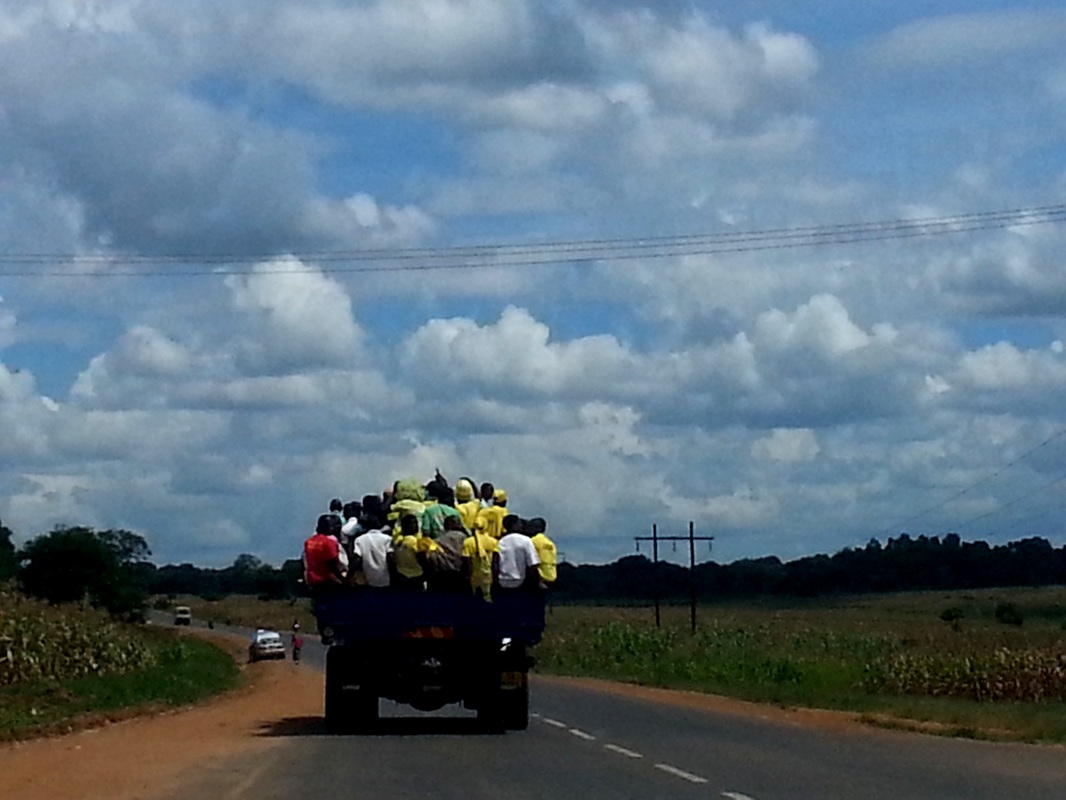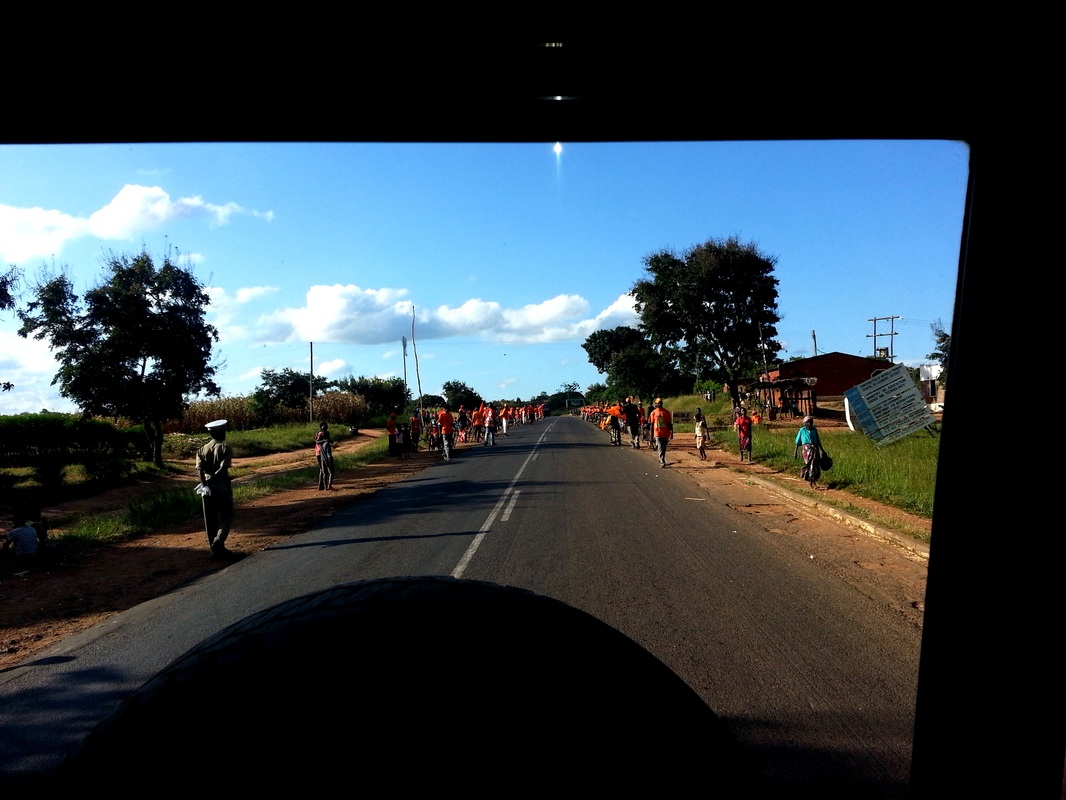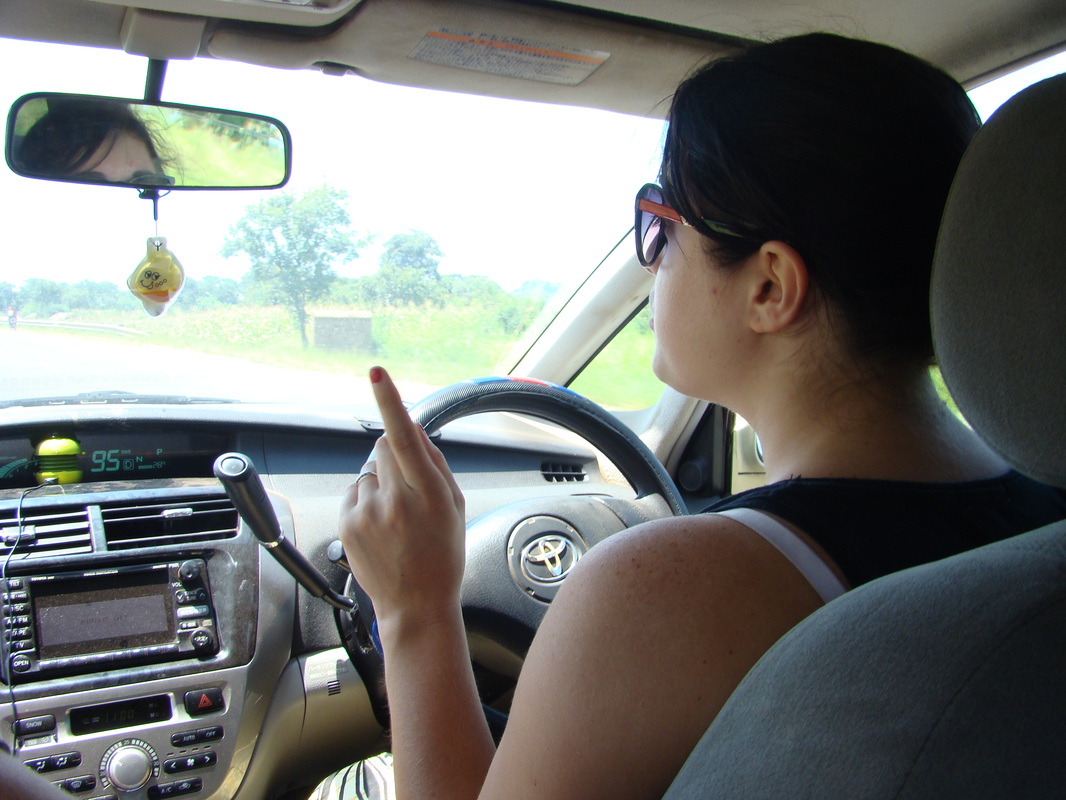|
As wonderful as it is to be back in Canada and to get to see all of my family and friends on this side of the world, leaving Malawi was one of the hardest things to come to terms with. For many months, I simply refused to acknowledge it as an option, and avoided the subject. However, when my last set of housemates left at the end of March, their final countdowns spurred my own, and the horror of having only a month left in the warm heart of Africa started to make reality set in. I am an ultimate planner, so I began to plot out exactly how I was going to pack, and make lists of all the things I still wanted to do and see. Looking back, I think there were only a few things that I was unable to squish into my last few weeks, and those were a dinner out with one close friend, and one final church-pool-jazz Sunday. (Irking me no end is the fact that my brother is spending this weekend in Malawi before heading on to Egypt, and my friends have promised to give him the Sunday experience… gahh!! Oh well, I am glad he gets to enjoy those places as well!) The end of my time in Malawi also marks the near completion of my Bachelors degree in Environmental Science. As of Monday, I will be in class for two weeks, completing a debriefing process and preparing and presenting a final report. I will be graduating this summer with a major in International Development, and a minor in Peace and Conflict Studies. This means that decisions for the future have also been monopolizing much of my brain space over the past few months. At the beginning of the placement, my goals were to come home and complete either a Bachelors of Education or a Masters of Library and Information Science. A few months into my time in Malawi, I felt all schooled out, loved where I was, and began looking for jobs in the development sector in Malawi. I did also apply to a few universities for a B. Ed., and got into most of them, but ended up deciding not to pursue that right now. After a long job search and a lot of research on potential online schooling options, I am pleased to be able to share that I will be returning to Malawi in August! I will be teaching Kindergarten and swimming lessons at the African Bible College Christian Academy in Lilongwe. The class will have 18 students comprised of both Malawian and international children, and I will be working with a Malawian teaching assistant. I also found out that there is an online program in the UK that is targeted at international teachers seeking accreditation, the Post-Graduate Certificate in Education. I am debating applying to complete this one-year, part-time program either this year or next. I am ecstatic to be returning to Malawi, and am excited to contribute to the ABC ministry. I will be in class from shortly before 7am until around 12pm Monday through Friday, and will also be teaching learn-to-swim classes for an hour following that on a few days a week. The classes are extremely diverse, and I cannot wait to begin teaching the next generation of world changers! The curriculum used at ABCCA is a variety of Christian curriculums from the US, and I was lucky enough to be able to spend an afternoon discussing the curriculum and class structure with one of the current Kindergarten teachers. ABC staff members are encouraged to join in outreach ministries, and I may end up volunteering in a local crisis nursery, with a prison ministry, or in one of their other programs. The rest of my weekly time in Malawi will continue to be busy! I will continue to be involved in the bible study group that my friend inadvertently started in the fall through conversations with other friends who had questions about faith. I will be working with my pastor to set up a website for our church and will be helping out with the worship ministry as well. I hope to also return to Dzaleka Refugee Camp regularly, to check in with the Special Needs Education Program and the Umoja Crafts group. This exciting development means that the next three months will be busily spent finding a mission agency to sign me on and second me to the African Bible College ministry, fundraising my monthly support, and working a summer job! I will be sure to keep you updated as to developments and news as the summer progresses. For now, it is time for me to unpack from my journey and repack to move in to school for the next two weeks (I think I may just wear all of my winter clothes in layers – brrr!). INDEVOURS – we reunite tomorrow!! Woohoo – I can’t wait to hear all of your stories and dreams for the future!
0 Comments
My last week in Malawi was amazing! It started with picking my little (big) brother up at the airport on Good Friday. In typical Katie and Malawian fashion, I did not realize that Good Friday means a ton of traffic in the city, and ended up being an hour late to pick him up! Oh well, at least his experience is truly authentic! We drove back into Lilongwe and I ran a few last-minute errands and we dropped the suitcases full of toys off at my house. Then we repacked the car and headed out of the city to go to Cape Maclear. We spent two lovely days hanging out at Cape Mac, eating yummy food, swimming, boating, kayaking, and snorkeling in and on the lake, and had a fun time reconnecting. Kris learned how to play Bawo, a traditional Malawian game, and promptly beat the Malawian guide he was playing against three times! On Sunday afternoon we packed up and headed off to begin the journey to Liwonde for a safari. However, after a quick pit stop, the car wouldn't start! Augh! It turns out that one of the problems that I thought had been fixed was only fixed temporarily, so Kris and I sat at the side of the road for five hours while a mechanic took a tire off, lowered the engine, removed a bearing, greased it up, and put it all back together again. Thankfully, the car worked again, and we got to finish our drive to Liwonde, though as it was now dark, it took double the amount of time, because of pot holes, not being sure of the directions we had, and high beams that decided not to work! It was an adventure, to say the least! We pulled into the Liwonde Safari Camp rather late and headed straight to bed. On Easter Monday, we got to spend the morning on a boat safari, seeing a bunch of hippos, cool birds, and a few elephants. We returned to the Camp for lunch, and then headed out again on a driving safari, where we came across many more elephants, impala, water buck, and greater kudu. We were't feeling very secure in the vehicle, so rather than taking our time leaving on Tuesday, we left right after breakfast, and drove into Lilongwe just after noon, amazingly, without any car trouble (except that I got a speeding ticket... whoops!). I gave Kris a tour of a few more areas of Lilongwe in the afternoon, and then we just spent the evening relaxing with my housemates (well, and I began the mountainous task of packing). Bright and early Wednesday morning, we walked to work and Kris came into camp with JRS. I spent the morning in a meeting with the Umoja Craft group, where, at the end of it, they presented me with goodbye gifts and speeches (so sweet!). Kris also was given a tour by Sam, the JRS driver, and walked around the camp a bit, finding a children's football game and joining in. We ate lunch at Shabani's, a local restaurant, and Kris got to try nsima, the staple food here in Malawi. After lunch, we went to a tailor in camp to pick up some clothing he had made for me, and visited with the Umoja paper bead-making group in the leader's house. Kris got to try making beads, which he found very difficult! After work, we walked home and ate a quick dinner before heading out to bible study, where Kris got to meet all of my close friends here in Malawi. It was a lot of fun and a great discussion about the kind of legacy we want to leave, and how that may have changed once faith became a part of our lives. Thursday was another day in camp, and Kris and I delivered all the toys that were donated by friends and family to the teachers in the Special Needs classroom. They were astounded at the supplies they have been given, and could not say thank you enough times! They have deemed the Special Needs classroom the richest in Malawi! Thank you, thank you, thank you to everyone who helped with outfitting this classroom! The toys and activities will be well-used in educating these children. Kris played some more football, this time becoming as good as the 4-year-olds (apparently barefoot football with a bundle of plastic bags as a ball is more difficult than you might think!). We ate lunch at a restaurant that is an income-generating project for some vulnerable women in camp, and then I spent the afternoon in various meetings, which Kris came along to. He also got to visit Patron, a guitar-maker in Dzaleka, and see some of the guitars that are in progress. After work on Thursday, we came home and I finished packing while Kris fried up some meat for a big pot of goulasch, which we then took over to a friend's house for a big goodbye dinner and hangout. It was a lovely last night in Lilongwe and I am so blessed to have the supportive friends that I do! Tomorrow I leave Malawi just after noon, and Kris will remain until Monday. See you soon, Canada! Last week, our housekeeper’s mother was very ill and she went to go visit her and nurse her. Her husband, our guard, arranged for one of his distant relatives to come and take on her tasks. This worked quite well until we arrived home from work on the day that our housekeeper returned, and my housemates discovered that 50USD had been stolen from them. As they did not know this new staff person, they had written down the totals they had hidden in the house, and checked it immediately when she left for the last time. In Malawi, it is very typical for staff to steal and not think that it is an issue, as ‘azungu’ have so much that they surely wouldn’t miss anything that went missing. I have had friends whose staff stole all their socks, hundreds of dollars, or even gardening tools. Thankfully, our staff members have never stolen from us, and as they live behind the house in our complex and are dependent on their jobs to support their three children, I doubt it would ever become an issue.
The Jos sat down with our guard and housekeeper to give them the bad news and ask what ought to be done. They were shocked and our guard was so outraged he was shaking. He immediately said that he would go to his family and have the money returned, and if that did not work, he would take his relative to the police. This is an amazing reaction, as family generally sticks together here, and the jails here are dangerous and overcrowded to such an extent that some crimes that would result in a small fine sometimes take years to be heard, leaving the accused sitting in jail for that length of time! The next day, our guard went home and all the male family heads met and discussed the issue. They called the girl to them, questioned her, and she admitted that she had taken the money. Our frustrated guard, asked why she thought she could steal from the employers of her relatives, and she stated simply that she didn’t think it would be a problem. He then told her off and told her that she had jeopardized his family’s wellbeing, and that it was horrible that after a year of working for the Jos without any problems, that this would happen. The council of elders told her to return the money, but she had given it to a neighbour to have it changed into Kwacha, so they had to spend a few days tracking it down. Thankfully, the issue has been resolved, with the money being returned to the Jos, and our staff being secure in their positions again. It was an interesting experience though, and the cultural and educational differences in Malawi of understanding the concept of ownership and potential consequences of actions were very clear. One of my co-workers, Mr. Mkweza, loves to tell stories, and was kind enough to allow me to record some of them and share them here with you! The recording was done during our ride home from camp, so there is some background noise and various interruptions as people disembark, but I think you will enjoy the story-telling anyhow. It will also give you an idea of what a Malawian accent sounds like! I have a few more stories for a post in the future, but will most likely be sharing the written version of them, as the recording was of much poorer quality. I hope you enjoy listening to "The Deer and the Millipede" and "The Deer and the Tortoise"! A few friends have asked me what a typical day looks like for a refugee in Dzaleka, so I asked one of my friends if he would let me interview him and share it here on the blog. Our interview covered quite a few topics, and I think it will be an intriguing look into the culture of the camp for blog readers.
Theo is the head tutor and a graduate of the Jesuit Commons: Higher Education at the Margins program that JRS runs in Dzaleka. He is 27 years old, and originally from the Democratic Republic of the Congo, but left there in 2009 because of the civil war. What is a typical day like for a refugee? We get up in the morning, fetch water, cook, go to DSTV, DSTV is like where we go to watch games, movies, news. We go there any time of the day – it is not about wasting time – some people go to the library in the mornings, or go to the organizations like UNHCR and JRS to get updates. What is the most difficult part of life in Dzaleka? The most difficult part of daily life here is finding food to eat, because what WFP gives is not enough. Some people go to their fields, but there are not enough, so some people make arrangements with villages to use fields. So understand, it is just eating, sleeping, hanging around with friends, nothing really like, something to do. Thanks to new technologies we can get access to the internet on phones, but yeah, people can get bored. Everyone has the experience at some point where they have everything they need, food, a house, electricity, but you can’t enjoy it, you just think about those future questions – can you get more food, can you get out of this hell and get resettled. So some people, they tell me that when they experience this, they can either join a church or go to a bar. The majority do survive through relationships. If you have today, you need to give it away – for one reason – if you keep it, if you don’t share, you will need others’ help, so you need to invest in other people. When you are in contact with someone, though may not be happy about something, you meet others whose situation is worse, and you think to yourself, ‘I am doing fine’, and this way you can balance yourself. What do you do for fun? I watch movies, play basketball, or run. But I don’t really like to talk – I can enjoy what others are talking about, but to contribute, oh no. I don’t know if it is because I do so much talking here. I think I am a different person when I am here than when I am in camp, because when I am down there I am tired. I just want to listen to music, or I can sometimes go to a bar, but there I just want to be left alone – they can play music but I don’t want to do the talking. Do you have family? No. I just understand a family as any person around me. Like now, I am living with some young men, and that is my family. Do children grow up too quickly in camp or are they able to play and be children? I think it is both. Yah, they can play, and you can imagine, a kid, given 24 hours for games and playing they will never get tired – they just come home because they are hungry or because they want to sleep. So children from age 3 up to age 10 have fun, but upwards from there, it is not so much fun, because they can critically analyze what they are going through, that their needs are not met, and there is no one to blame – your mom and dad don’t have a job or work, they are just struggling to find something to eat. So you find that they are only satisfied with food, but other needs – no. And for women, for girls, you know what happens – some can get into prostitution so easily. It’s tricky; it is a very difficult situation. In a refugee camp, someone can grow and can guide his or her life how they want, but then you get the problem of how that person can support a family, or how their experiences impact their lives – so a man might go outside of his marriage to get sexually satisfied, and the young girls they will not ask much. And young men, again, they can’t date because they don’t have a job or whatever, and it is the easiest way to get satisfied, and it is an opportunity for the young girls to get satisfaction and good food. It is tricky to get those young girls to understand that there is nothing good in this, that it may be helping satisfy their needs and be a nice experience now, but it might not be in the future, but it is very difficult for them to understand that there is not hope (for a marriage). S that’s why you find like anything happening, most of the experience in camp is about relationship, but about tricky relationships – most of the adults doing business together can betray each other. You said that it is difficult for men to date in camp – is that cultural, or what are the reasons why this is? When we are talking about dating or getting married, it is all about love. But now it is difficult to talk about that here in a relationship – if you love someone, that is fine, but the first thing you need to do is satisfy their basic needs. And the culture here, the man is expected to provide almost everything, so now if you can’t, then it is a big issue. And you will find for those young women or girls, they are targeting someone who can support them. So now, the situation has changed, because you can’t choose, just your needs choose, so to be satisfied is difficult. Eighty or ninety percent of refugees are religious, and we try to really follow what the spiritual leaders tell us, but mainly what is seen, not so much wht is not seen. So if you go the market, you will find that most of the women with head coverings and a long dress – you can’t find a young girl wearing a short skirt or sleeveless shirts, so you can see that they are really following what the church leaders are telling them – so where are we getting those early pregnancies in teenagers? The majority of those teenagers have kids but are not married – they are still in the home – I cannot understand how this is happening, but again, I will note that it is just for the needs that they do what they are doing. I had the privilege of attending a youth event at a local church this weekend, called ‘The Gathering’. It began like a normal church service, with worship and a sermon. But it was extremely interactive – the preacher spoke on the country of Malawi, which has now been independent for 50 years, the upcoming elections, and the need to return to the original vision for the country and determine what Malawian’s want their country to be today. He and a colleague then listed a bunch of sectors and asked the attendees to brainstorm short lists of what they did not like and what they wanted to see in each of the areas. It was really interesting for me as a fellow Christian who loves the country, a young person, and a development student, to hear the ideas and dreams that a group of teenagers and young adults had for their country. So I thought I’d share the resulting brainstorm chart with you! “The Malawi We Want”
Malawi is leading up to elections happening next month, and the parties are ramping up their advertising and holding rallies all over the country. The campaigning mainly happens either at live rallies or on radio shows, as that is the form of media most understood and wide-spread (TVs and internet are expensive and internet and newspapers require literacy). There are billboards, flags, chitenge, and signs all over the country, and when there are rallies, supporters of that party turn up decked out head to toe in the party colour – I have even seen people who have used house paint to paint themselves the party colour! It seems to be an unpredictable election, as the current president became president by default after the former leader died two years ago, and the vice-president succeeded him. President Joyce Banda had left the ruling party when she was vice-president and started her own party, so the current ruling party is not the same as the current president. Also, there was a big scandal involving a lot of aid money going missing in the fall, which has been nicknamed ‘Cashgate’, and those to blame for it vary depending on who you speak with. It will be interesting to follow the elections when I come home, and see which party succeeds.
Hi friends and family! One of my brothers is currently backpacking Europe, and that statement is all the news we are getting out of him! And from me, you have not heard much for the past month! I apologize for the lack of posts - life has been incredibly hectic with wrapping up the school term assignments, making sure my house-mates got the most out of their last few weeks in Malawi, and the final crunch of work. But, don't worry - I have been keeping a list of things I want to share with you, and these posts will be making their way onto the blog over the next few weeks. The placement coordinator for INDEV asked us if we could answer a few questions for a newsletter, so I thought I'd share my responses with you too!
1) How are you finding your placement and the country/environment you are living in? I absolutely love Malawi – the climate, people, work, friends – it seems to have been made for me! My placement is amazing – I get to work with some great kids with special needs in a refugee camp, and also with a large women’s cooperative craft group. I have difficult days where I miss family, work is difficult emotionally, or conveniences such as consistent running water, sure, but on the whole, this has been some of the best months of my life. 2) What have you learned (which you did or did not expect to)? I have learned that I really don’t mind not having electricity, except for when papers are nearly due! And that having no running water freaks me out – I have a bunch of 5L containers filled with back-up water as we are not always given notice of water cuts, and they could last from a few hours to a week in length. I have learned that cooking and baking for others is a huge way for me to relax and reduce my stress levels after a long day of work. And a big one is that Canadians are not nearly as friendly and welcoming as Malawians – they really do live up to the moniker ‘the warm heart of Africa’! 3) What are you looking forward to now? I am looking forward to or dreading with all of my being (depends on the day) to graduating this spring, and deciding whether to go to graduate school or get a job in Malawi, or try to do both at the same time! |
AuthorWelcome! My name is Katiana and I am a development professional pursuing my dream to live out Isaiah 1:17 to the best of my abilities. I am passionate about teaching and working with vulnerable families and children to improve their lives sustainably.
CaveatThis blog is composed of my personal opinions, which do not necessarily reflect the opinion or views of institutions or organizations that I may be or have been affiliated with.
Categories
All
Archives
July 2017
|
